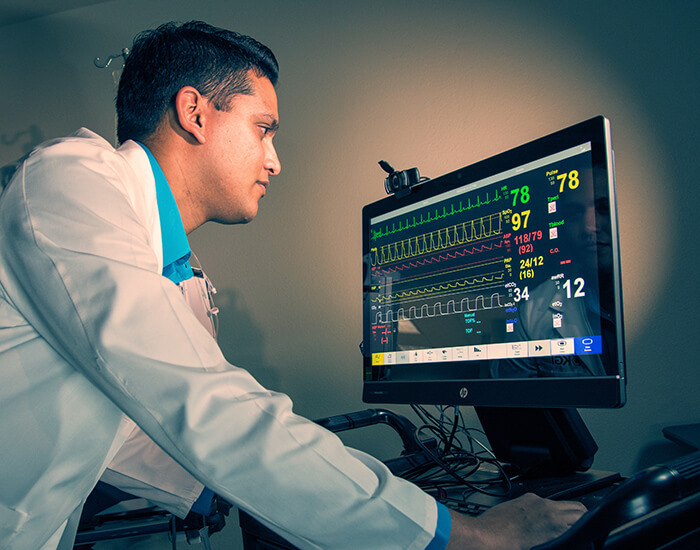Pharmacy is almost like an open secret in the medical field. Not only do pharmacists command high salaries (median $128,000 per year), but their role is also increasingly important as average life expectancy increases. But what makes pharmacy particularly unique among other doctorate-level medical professions is the process for entry. While most med schools have a notoriously stress-inducing testing and application process, pharmacy schools offer a centralized application process with higher acceptance rates for qualified candidates.
Anyone can become a pharmacist with the right preparation. There are dozens of Doctor of Pharmacy (PharmD) programs available. Some schools will require a standardized test designed specifically for pharmacy degree applicants. Others only require you to meet academic prerequisites in courses critical to success in a pharmacy degree program. To ensure you’re a top candidate, examine all of the minimum requirements that exist for most pharmacy schools; then meet those requirements prior to submitting applications.
Types of pharmacy jobs
“Pharmacy” is a loaded term. There’s more than one type of pharmacist. Within the profession, you’ll find positions such as:
- Ambulatory care pharmacy
- Clinical pharmacy
- Compounding pharmacy
- Home care (infusion) pharmacy
- Hospital pharmacy
- Regulatory pharmacy
As with most other medical professionals, many pharmacists also specialize. Pharmacists can focus on areas such as oncology, pediatrics, geriatrics, psychopharmacology, and many others. Where you choose to focus depends on your interests and additional training both during and after you complete a pharmacy degree.
Not everyone who wants to work in pharmacy will need to obtain a Doctorate of Pharmacy. Pharmacy technician and pharmacy assistant jobs are also available and typically require a high school diploma at a minimum. Additional certifications or an associate’s degree may be required.
Two paths to becoming a pharmacist
What’s most unique about pharmacy is how the application process for pharmacy schools differs compared to other professions within medicine.
Med schools are well known (sometimes feared) for their difficult entry requirements, which include the MCAT and culminate in a matriculation rate that hovers around 41%. Competition is fierce, so med school applicants apply, on average, to 16 schools — or as many as 20 in highly competitive states.
Conversely, pharmacy schools have strict, but not overbearing application requirements.
To become a pharmacist, you’ll need to follow one of two paths:
- Take and excel in the prerequisite undergraduate coursework for select degree programs
- Achieve a high score on the Pharmacy College Admission Test (PCAT)
Note that almost every PharmD program will require you to successfully complete an undergraduate degree. Some Doctor of Pharmacy degree programs will admit students with a bachelor’s degree in any area so long as the applicant has a high enough score on the PCAT. However, many programs, including Keck Graduate Institute (KGI)’s PharmD, do not require you to submit a PCAT score at all. In such a situation, you’ll need to submit transcripts that meet your prospective school’s academic coursework that’s considered a prerequisite for the program.
You may want to follow both paths to increase the likelihood of getting admitted to the school of your choice. Research the programs you’re most interested in and follow the requisite coursework guidelines for admittance. Many schools with no PCAT requirements will have similar coursework prerequisites.
Make sure to study for and take the PCAT the year before you plan to submit applications. This will give you time to retake the test — just in case you need to earn a higher score.
The pharmacy school application process is centralized through the Pharmacy College Application Service (PharmCAS) system. You’ll be able to submit all of your applications in one place. The pharmacy school application cycle typically runs from the summer to the fall, ending just before schools begin to admit new students.
Don’t miss the PharmD application window
Apply to KGI’s Doctor of Pharmacy degree program using the PharmCAS system. KGI has no PCAT or other standardized testing requirements. Submit your transcripts with the prerequisite coursework alongside other application materials. KGI accepts prerequisite coursework from accredited four-year and two-year institutions.
KGI’s four-year PharmD program will prepare you for roles across the medical industry. Courses in areas such as Drug and Biologic Regulations, Principles of Pharmacology and Toxicology, Cardiovascular/Renal Pharmacology and Medicinal Chemistry, and Pharmacy Management will help make you a versatile hire in pharmacies, hospitals, NGOs, government agencies, or within private-sector biotech companies.
Contact us today to learn more about our PharmD program, including available need- and merit-based financial aid opportunities.
